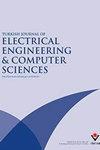Classification of generic system dynamics model outputs via supervised time series pattern discovery
IF 1.2
4区 计算机科学
Q4 COMPUTER SCIENCE, ARTIFICIAL INTELLIGENCE
Turkish Journal of Electrical Engineering and Computer Sciences
Pub Date : 2019-04-01
DOI:10.3906/ELK-1711-394
引用次数: 3
Abstract
System dynamics (SD) is a simulation-based approach for analyzing feedback-rich systems. An ideal SD modeling cycle requires evaluating the qualitative pattern characteristics of a large set of time series model output for testing, validation, scenario analysis, and policy analysis purposes. This traditionally requires expert judgement, which limits the extent of experimentation due to time constraints. Although time series recognition approaches can help to automate such an evaluation, utilization of them has been limited to a hidden Markov model classifier, namely the Indirect Structure Testing Software (ISTS) algorithm. Despite being used within several automated model-analysis tools, ISTS has several shortcomings. In that respect, we propose an interpretable time series classification algorithm for the SD field, which also addresses the shortcomings of ISTS. Our approach, which can highlight the regions of a certain time series that are influential in the class assignment, is an extension of the symbolic multivariate time series approach with the use of a local importance measure. We compare the performance of the proposed approach against both ISTS and nearest-neighbor (NN) classifiers. Our experiments on a SD-specific application show that the proposed approach outperforms ISTS as well as conventional NN classifiers on both noisy and nonnoisy datasets. Additionally, its class assignments are interpretable as opposed to the other approaches considered in the experiments.基于监督时间序列模式发现的通用系统动力学模型输出分类
系统动力学(SD)是一种基于仿真的分析反馈丰富系统的方法。理想的SD建模周期需要评估大量时间序列模型输出的定性模式特征,以进行测试、验证、场景分析和策略分析。这通常需要专家判断,由于时间限制,这限制了实验的范围。虽然时间序列识别方法可以帮助自动化这样的评估,但它们的使用仅限于隐马尔可夫模型分类器,即间接结构测试软件(ISTS)算法。尽管在一些自动化模型分析工具中使用,但ISTS有几个缺点。在这方面,我们提出了一种可解释的SD领域时间序列分类算法,该算法也解决了ist的缺点。我们的方法可以突出显示某个时间序列中对班级分配有影响的区域,是使用局部重要性度量的符号多元时间序列方法的扩展。我们比较了所提出的方法与ISTS和最近邻(NN)分类器的性能。我们在sd特定应用程序上的实验表明,所提出的方法在噪声和非噪声数据集上都优于ISTS和传统的神经网络分类器。此外,与实验中考虑的其他方法相反,它的课堂作业是可解释的。
本文章由计算机程序翻译,如有差异,请以英文原文为准。
求助全文
约1分钟内获得全文
求助全文
来源期刊

Turkish Journal of Electrical Engineering and Computer Sciences
COMPUTER SCIENCE, ARTIFICIAL INTELLIGENCE-ENGINEERING, ELECTRICAL & ELECTRONIC
CiteScore
2.90
自引率
9.10%
发文量
95
审稿时长
6.9 months
期刊介绍:
The Turkish Journal of Electrical Engineering & Computer Sciences is published electronically 6 times a year by the Scientific and Technological Research Council of Turkey (TÜBİTAK)
Accepts English-language manuscripts in the areas of power and energy, environmental sustainability and energy efficiency, electronics, industry applications, control systems, information and systems, applied electromagnetics, communications, signal and image processing, tomographic image reconstruction, face recognition, biometrics, speech processing, video processing and analysis, object recognition, classification, feature extraction, parallel and distributed computing, cognitive systems, interaction, robotics, digital libraries and content, personalized healthcare, ICT for mobility, sensors, and artificial intelligence.
Contribution is open to researchers of all nationalities.
 求助内容:
求助内容: 应助结果提醒方式:
应助结果提醒方式:


